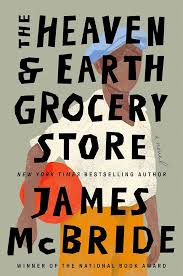Chapter 18: The Hot Dog
byChapter 18: The Hot Dog begins with Chona, one week after her assault, drifting between dreams and a painful reality. She lies in her hospital bed, barely tethered to the world, as fragments of a prayer from her childhood, Barukh She’amar, float through her consciousness like shimmering motes of light. These prayerful echoes remind her of Sabbath mornings beside her father, the comfort of ritual, and the warmth of faith long held. Her parched lips and whispered desire for water elicit a quiet response, grounding her momentarily. But then, intruding upon the sacred, she catches the scent of something utterly profane—a hot dog. The smell, vivid and unmistakable, feels out of place. It conjures a memory of a childhood dare with Bernice at Fatty’s burger stand. The mix of religious nostalgia and forbidden pleasure underscores the complex interweaving of past, faith, and longing within her failing body.
Awakened by her discomfort and the surreal scent, Chona becomes aware of her surroundings. Moshe is slumped in a chair beside her, hand in hand, his exhaustion visible in his posture and pallor. Guilt overwhelms her—she sees in him the man he used to be and mourns who he’s become through grief and hardship. She remembers scolding him over the years, misunderstanding his resilience as naivety, his kindness as weakness. Despite her regrets, she admires the principles that guided him: his belief in music, justice, and shared humanity. Her pain grows unbearable, and as her senses blur, the hot dog’s scent once again presses against her mind, both comic and tragic in its symbolic absurdity. She waves weakly, requesting it be removed. The moment becomes a metaphor: the purity of a life slipping away amidst the intrusion of a world far less dignified than it claims to be.
In the haze of her last moments, the room fills with familiar faces—Isaac, Rabbi Feldman, the Skrupskelis twins, Addie, Nate, and Bernice. But someone is missing—Dodo. Chona’s instinct is to ask about him, and Moshe’s reassurance doesn’t reach her as the pain overtakes her. She is caught between two worlds: the physical realm that insists on suffering, and a spiritual memory of light, prayer, and love. The bond between her and Moshe, silent yet profound, is reflected in every gesture he makes. As her strength dwindles, she jokes weakly to Bernice about the hot dog. Her Yiddish slips out unconsciously, reminding them all of the cultural tapestry that has bound them together, even as life unwinds. Bernice, typically stoic, smiles softly—an emotional breakthrough that feels like grace in a moment otherwise ruled by sorrow.
Beyond Chona’s room, her passing draws together an unlikely collection of mourners—Black and Jewish, working class and intellectual. They stand awkwardly in the hospital corridor, an unacknowledged coalition shaped by shared struggle. There is no coffee, no comforting chaplain, just silence and glances, memories and tension. Their presence is a quiet rebellion against the separations society imposes—these people who, in any other setting, might never be seen together. But now, drawn by loss and loyalty, they wait. A conversation between Rabbi Feldman and Isaac hints at an old dispute, an unsent letter, and suspicions about Doc Roberts—threads of a larger mystery still unraveling. As they speak, Moshe’s grief bursts from the room in a howl that silences all dialogue and reshapes the moment.
The hallway transforms into a place of pilgrimage. The group, frozen by the weight of Moshe’s wail, begins to move forward as one. They are not just friends or acquaintances but witnesses to a fading era. Like fusgeyers—Jewish refugees walking across Eastern Europe—or the first Africans forced onto American shores, they walk with a dignity forged from pain. In this walk, they carry generations of stories: of oppression, of survival, of misplaced futures and discarded truths. Their lives, full of meaning, are already being erased by the march of time and modern convenience. The hot dog, once just a scent in Chona’s dream, becomes a symbol of cultural decline—of a future so saturated with distraction and consumption that real connection becomes foreign.
Chona’s final moments, filled with prayer, memory, and the intrusive scent of something unclean, evoke more than personal tragedy. They offer commentary on a vanishing world—where faith met justice, where identity was layered and fought for, and where life was defined by more than what could be bought or streamed. In her fading awareness, she senses not only death but the arrival of a future devoid of meaning, masked in convenience. The people around her—those standing in that hallway—are the last custodians of something sacred. They don’t know yet what they carry, or what will be lost. But as they step forward into the unknown, they move together—not because of creed or race, but because of shared pain, shared history, and the burden of remembering when others forget.


